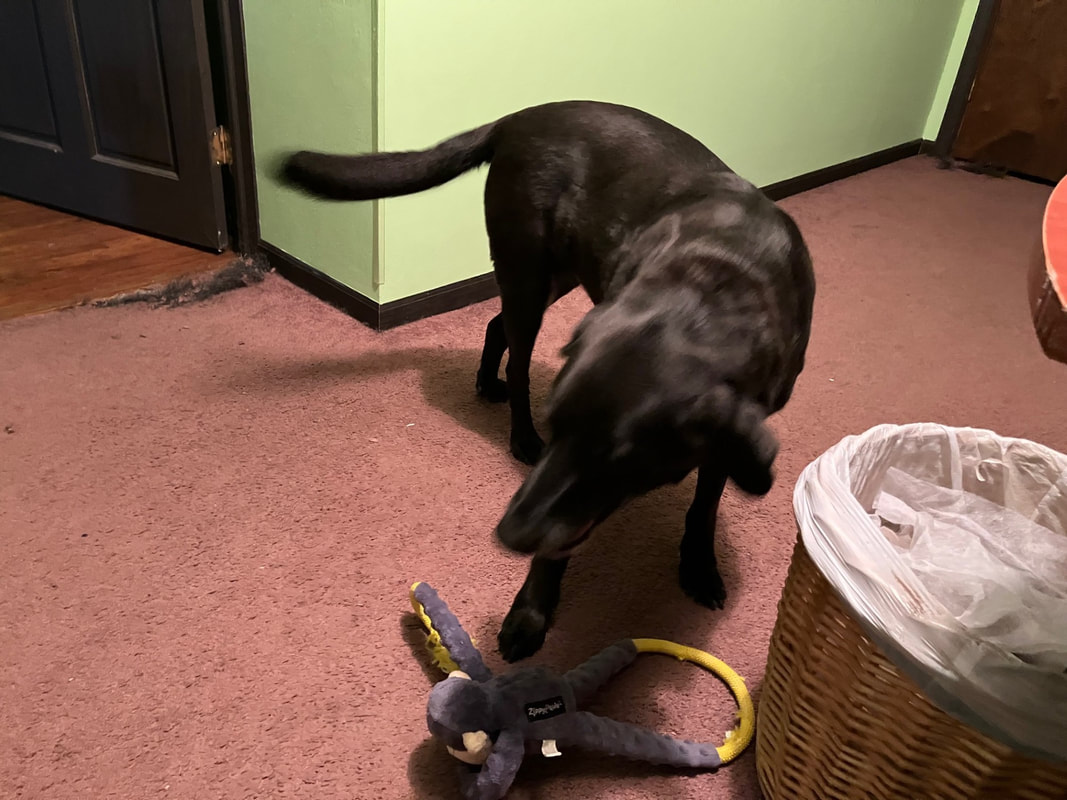
This morning one of my workout buddies introduced the topic of how dogs greet us. He has a black lab who joyously lets his owner (L) know how happy he is when L comes home from work.
Like most dogs, this takes several forms. Barking, licking, leaping into your arms, tail wagging all fall into the category of “dang, I’m happy my owner is home from a hard day at work.”
The reason for the dog demonstrably showing its love could be it knows dinner is on the way. It could be the dog is pumped for some silly words of appreciation that dog owners shower on their pets. It could be the sheer joy of knowing a walk outdoors is impending.
Regardless of the reason, the dog shows its happiness. As L and I discussed this while stretching, we both remarked on how great it would if humans greeted each other that way. Imagine the possibilities. For the purposes of this comic scenario, presume one spouse is already home (H) when the other returns from long day at work (W).
W pulls into the driveway. H hears the car and the ears perk up, the eyes shine. Heartbeat increases, smile emerges on the face.
W lags into the house, shoulders slumped, the commute pounding W on the drive home. H races across down the front hallway, singing their favorite song. Halfway down the hall, H leaps in the air towards W.
W, knowing this is a nightly occurrence due to H’s deep and abiding love, is prepared and has arms out, reading to receive the full hug, a deep kiss and any other human adoration and physical affections.
W suddenly smiles. The world seems better. The stress from work and the commute ease slightly.
Dogs seem to know this stuff intuitively. Maybe their actions are meant to reinforce the lesson of positive physical contact. “Hey, Mr. Owner, get with the program. Unconditional love is a good thing. Let it fly.”
As L and I continued laughing and postulating scenarios, we got a bit more serious, wondering why we humans don’t greet each other more often with a deeper compassion. Is it because we’re more complicated beasts? Is it because we don’t have someone feeding us, putting a roof over our heads, and taking care of the basics of survival necessary for a dog?
We’ll never get to the bottom of those questions because, despite our dog talk that attempts to mimic and intuit our messages to our furry animal, we really don’t know what’s in their minds. They show us the basics of being happy. We can sense their sadness and their hunger, but can’t truly know what they think much beyond that.
Perhaps all day they’re engaged in mathematical computations to develop a clean energy source. When you park the car and slam the door, they know it’s time to shut down the brain and have some fun.
Maybe other than napping most of the day, they contemplate how to ensure a better world food distribution network. When the garage door opens, they shelve the thought process and ring the happiness bell.
We’ll never know. We can speculate. And, we can emulate.